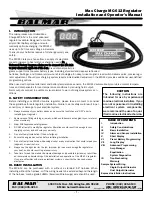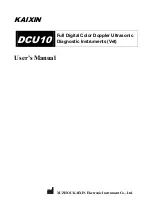
50
10.- The maximum time authorized for storing a fresh product is from 6 to 21 days according to
recommendations from the health authorities. This amount of time is obviously greater when
storing frozen food below -18ºC.
11.- In order to vacuum-seal hot foods, do a partial vacuuming. That way you will avoid the
atmospheric pressure descending too much and you will reduce the risk of boiling.
12.- Before vacuum-sealing animal products, they must first be dead. This mainly applies to
seafood. For example, it would be a serious mistake to vacuum-seal raw mussels in their
valves and not cook them immediately. Live animals will suffocate when they are deprived of
oxygen and will die and quickly start to decompose.
Quick cooling
Quick cooling is one of the most important points of the vacuuming process. All of the precautions
taken will serve for nothing if once the cooking has finished, we fail to get the temperature below
10ºC in less than 2 hours.
Microorganisms easily develop in temperatures that oscillate between 10ºC and 65ºC, and this
danger is accentuated between 35ºC and 45ºC. Getting past this zone (65ºC – 10ºC) in less than
2 hours means that there is not enough time for microbial proliferation.
Quick cooling systems:
Direct contact with very cold water
This is the most effective method at home. It entails submerging the bag in water with ice. If the
water contains salt, temperatures of 5ºC can be reached without the water freezing.
Forced air chillers
This is the traditional system in refrigerators in which a refrigerating gas circulates under pressure
through a coil. This cools the air inside the cabinet or chamber. There is a fan inside the cabinet
that evenly distributes the temperature inside the environment.
















































